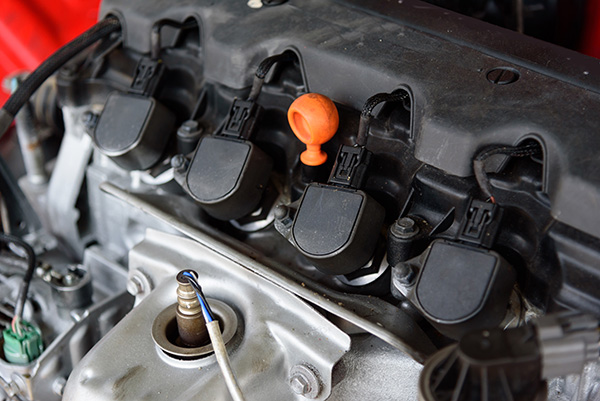
You’re driving along when your car suddenly stumbles, hesitates, or feels like it’s lost power for a moment. This could be the unmistakable sign of an engine misfire. Though the term sounds intimidating, a misfire simply means that one or more cylinders in your engine aren’t firing properly. The combustion process has been interrupted, and the engine struggles to run as smoothly and efficiently as it should.
While your vehicle may still run after a misfire, ignoring the problem can lead to worse fuel economy, poor performance, and even permanent engine damage. Understanding what causes misfires is the first step toward resolving them quickly.
What Does an Engine Misfire Feel Like
Misfires can present themselves in different ways depending on when they occur. You might notice a rough idle, hesitation when accelerating, or a sudden jerk while cruising. Some vehicles may trigger the check engine light right away, especially if the misfire is persistent.
Sometimes, a misfire causes noticeable vibrations or makes the engine sound off-rhythm. In more severe cases, the car may stall or have trouble starting. If left untreated, repeated misfires can damage other components, such as the catalytic converter.
Common Cause: Worn Spark Plugs or Ignition Components
One of the most common and easily fixed causes of misfires is a worn or fouled spark plug. Spark plugs create the electric spark that ignites the fuel-air mixture in each cylinder. Over time, they can become coated in carbon deposits or simply wear out.
Ignition coils, which generate the high voltage needed for the spark plugs, can also fail. If a coil isn’t delivering consistent power, the plug may misfire or not fire at all. Similarly, damaged spark plug wires (in older vehicles) can interrupt the spark path.
Replacing these components as part of routine maintenance can prevent misfires and ensure the engine operates smoothly.
Fuel Delivery Problems
If your engine isn’t getting the right amount of fuel at the right time, misfires can occur. A clogged fuel injector, failing fuel pump, or dirty fuel filter can disrupt fuel flow. When a cylinder doesn’t receive enough fuel or receives too much' the combustion process becomes unbalanced.
Contaminated or poor-quality gasoline can also cause inconsistent combustion. If you’ve recently filled up at a new station and notice problems shortly after, the fuel itself might be the culprit.
Air Intake or Vacuum Leaks
For combustion to occur properly, the engine needs the right mixture of fuel and air. If there's a leak somewhere in the intake manifold or vacuum hoses, too much air may enter the combustion chamber. This disrupts the air-fuel ratio and can lead to a lean misfire.
Modern engines use a mass airflow sensor to monitor air intake. If this sensor is dirty or faulty, the computer may miscalculate the amount of fuel to inject, causing the engine to stumble.
Sensor and Control Module Issues
Your car’s engine relies on multiple sensors and an onboard computer to maintain optimal performance. Sensors that monitor oxygen levels, crankshaft position, and camshaft timing all feed data to the control module. If any of these sensors fail or provide incorrect information, the timing of combustion can be thrown off.
A bad crankshaft position sensor, for example, might cause misfires by sending erratic signals about engine speed and piston position. Diagnosing these issues often requires professional scanning tools to access fault codes and pinpoint the source.
Internal Engine Problems
In some cases, a misfire stems from mechanical issues inside the engine. Low compression due to worn piston rings, damaged valves, or a blown head gasket can prevent proper combustion in one or more cylinders.
These problems tend to develop over time and may be accompanied by other symptoms, such as coolant loss, smoke from the exhaust, or poor overall engine performance. While more serious, they’re also less common than ignition or fuel issues.
What to Do If Your Engine Misfires
If you suspect a misfire, it’s important to have your car inspected right away. Even if it seems minor, the longer you drive with a misfire, the more damage can occur. Fuel that isn’t burned properly can overheat the catalytic converter, leading to expensive repairs.
A qualified technician can perform diagnostic testing to read trouble codes and check the condition of your ignition, fuel, and air systems. In many cases, a misfire can be resolved with relatively simple repairs.
Protect Your Engine with Help from Tom's Auto Center in McFarland, WI
No one wants to feel their car stumble when merging into traffic or cruising down the highway. Misfires not only reduce performance and efficiency, but they can also put your engine’s health at risk if ignored for too long.
If your vehicle is showing signs of a misfire, visit Tom's Auto Center in McFarland, WI. Our team will investigate the issue and ensure your engine is running smoothly again.